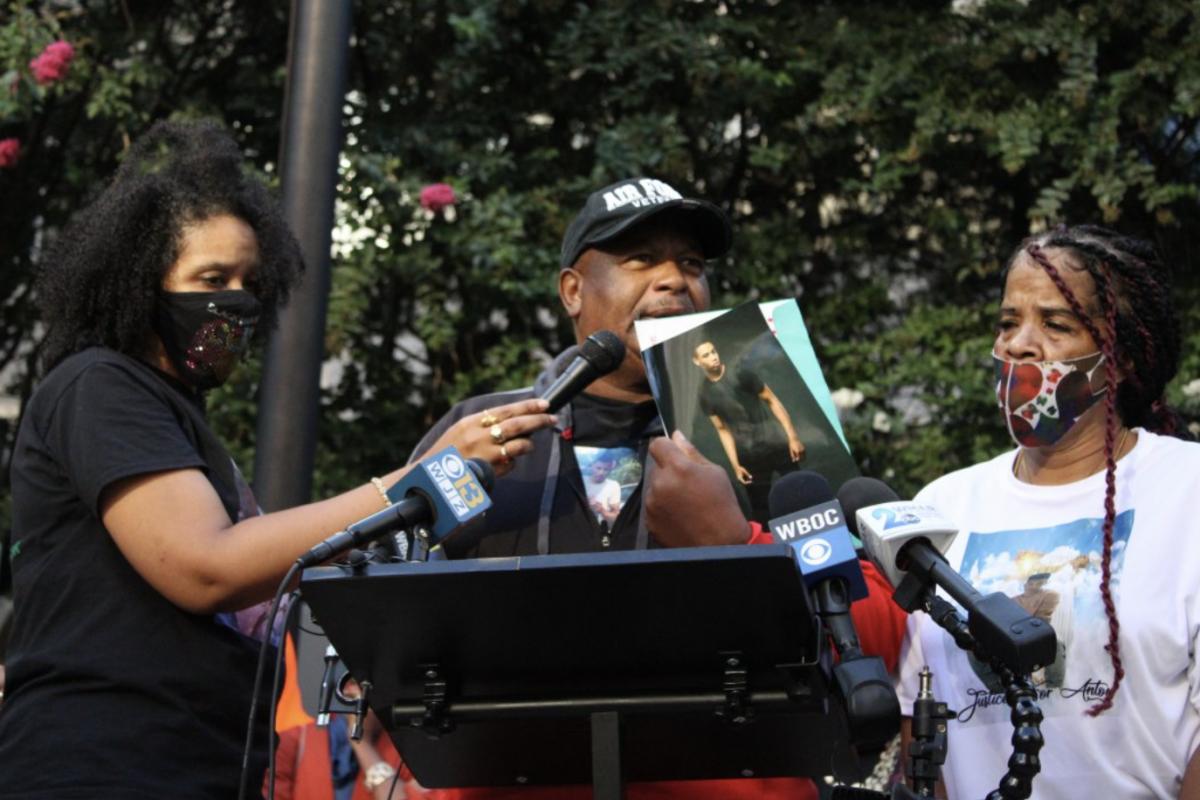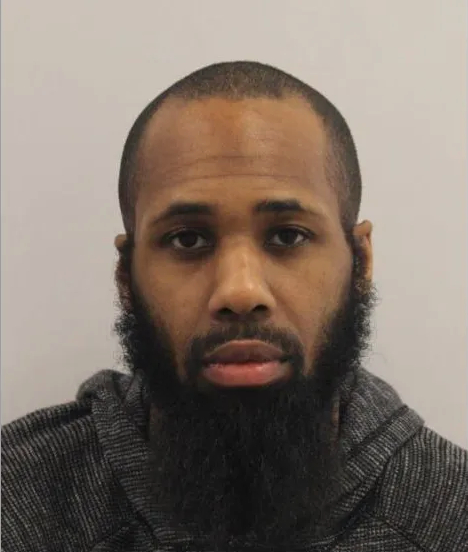After several legislative attempts in past years fell short, beginning today, civilians will have the right to request to review police misconduct records.
Anton’s Law, named after 19-year-old Anton Black, who died in police custody in 2018, reclassifies police administrative and criminal misconduct records from personnel records to public records, allowing them to be inspected by civilians through the Maryland Public Information Act.
“Let me be clear, we are not seeking justice for Anton because justice would have been Anton being alive today — with his daughter, with his family, with the very community that raised him,” Del. Gabriel Acevero (D-Montgomery), the bill’s House sponsor, said at a news conference Thursday. “But what we can get and what we’re fighting for is accountability … that will not only ensure transparency but ensure that those members of the public who are seeking information about investigative and misconduct records, that that information is not only accessible but we’re changing the way law enforcement operates in our communities.”
The law also puts limits on when no-knock search warrants can be utilized by police agencies, alters the standard requirements placed on general search warrants and requires law enforcement agencies to provide annual summarized data reports regarding their use of search warrants to the Governor’s Office of Crime Prevention, Youth and Victim Services.
Acevero and Sen. Jill P. Carter (D-Baltimore City), the bill’s Senate sponsor, unsuccessfully worked two versions of legislation bearing Black’s name in the General Assembly before their bill passed in 2021.
“My hope is that with the passage of Anton’s Law, we will no longer allow the patterns and practices of unconstitutional policing … and most importantly, we will save lives by preventing other heinous, brutal, extrajudicial killings such as that of Anton Black,” Carter said Thursday.
On Sept. 15, 2018, Black was chased on foot by police to his Greensboro home, forcibly dragged from a locked car, put in restraints and subdued under the weight of law enforcement officers for several minutes.
He died on the ground, feet away from the entrance of his mother’s home.
“Out of fear, this mother, this loving mother, Anton’s mother, had to compose herself the entire time while they were killing her son,” said René Swafford, an attorney representing the Black family. “And even in the midst of her pain, her anguish and her fear, she was the only one on the scene that night that did anything to try and de-escalate the situation.”
Carter said that Anton was “one of 31 extrajudicial killings” in Maryland in 2018.
“They threw him on the ground, they beat him, they choked him. He’s crying for his mother,” said Anton’s father, Antone Black. “My son was George Floyd before George Floyd, and there’s no justice, so far, for Anton Black, and there’s no peace for me.”
According to an autopsy report published by The Baltimore Sun, Maryland’s former chief medical examiner, Dr. David Fowler, ruled that sudden cardiac death with factors contributed by Black’s diagnosis of bipolar disorder was the cause of his death.
Fowler testified for the defense during the murder trial of former Minneapolis Police Officer Derek Chauvin in the George Floyd case. In his expert testimony, Fowler ruled that Floyd did not die because he was restrained, but because of sudden cardiac arrest exacerbated by drug use and potential carbon monoxide poisoning from vehicle exhaust.
Maryland Attorney General Brian E. Frosh (D) called for an audit of deaths in police custody overseen by Fowler during his nearly 20-year tenure.
‘The murders will not stop’
The Black family struggled for months to access police and autopsy records following his death.
Black’s sister, LaToya Holley, testified before the House Judiciary Committee in 2020 that only after the media pressed Gov. Lawrence J. Hogan Jr. (R) to comment on the case did they receive any State Police or Medical Examiner reports.
Holley said Thursday that, in the meantime, her brother was “demonized purposefully and was made out to be this really bad young man to … prevent the media from actually reporting accurate information.”
“They took the narrative that was provided to them by the law enforcement officers and ran with it,” she said. “It is something that I’ve never forgotten; of course it’s forgiven, but the killings aren’t going to stop.”
One of the police professionals who pursued Black, former Greensboro officer Thomas Webster IV, had multiple use of force reports on his record during his time as an officer on a Delaware police force.
Kenneth Ravenell, an attorney for the Black family, said that, while working in Delaware, Webster “assaulted over 29” Black people, and that the Caroline County police chief “falsified records” to allow him to work in Maryland.
Webster has since been decertified as a police officer by the Maryland Police Training and Standards Commission, though he was cleared of criminal charges in Black’s death.
In December 2020, the Black family and the Coalition for Justice for Anton Black, backed by the ACLU of Maryland, filed a wrongful death lawsuit in federal court against the state, the town of Greensboro, Fowler and Webster, among other municipalities, medical experts and members of law enforcement.
The lawsuit asserts that excessive force, racial bias and “positional asphyxiation” — rather than Fowler’s ruling of a cardiac condition — caused Black’s death.
Ravenell, who represents the Black family in the suit, said that law enforcement is trying to get the case dismissed on the basis of qualified immunity.
Qualified immunity is a Maryland law that exempts state and municipal employees from civil liability for actions that infringe upon the rights of others if they fall within the scope of their job description, were objectively reasonable or were enacted without malice or gross negligence.
“We know that until we get rid of things like qualified immunity — when these police officers have this protection under the law that the Constitution never guaranteed them — that we are not going to get justice and the murders will not stop,” said Ravenell.
In addition to Anton’s Law, a bill sponsored by Senate Judicial Proceedings Committee Chairman William C. Smith Jr. (D-Montgomery) that limits law enforcement’s ability to procure military equipment and would set forth a process to independently investigate use of force incidents that result in death will also go into effect Friday.
By Hannah Gaskill



